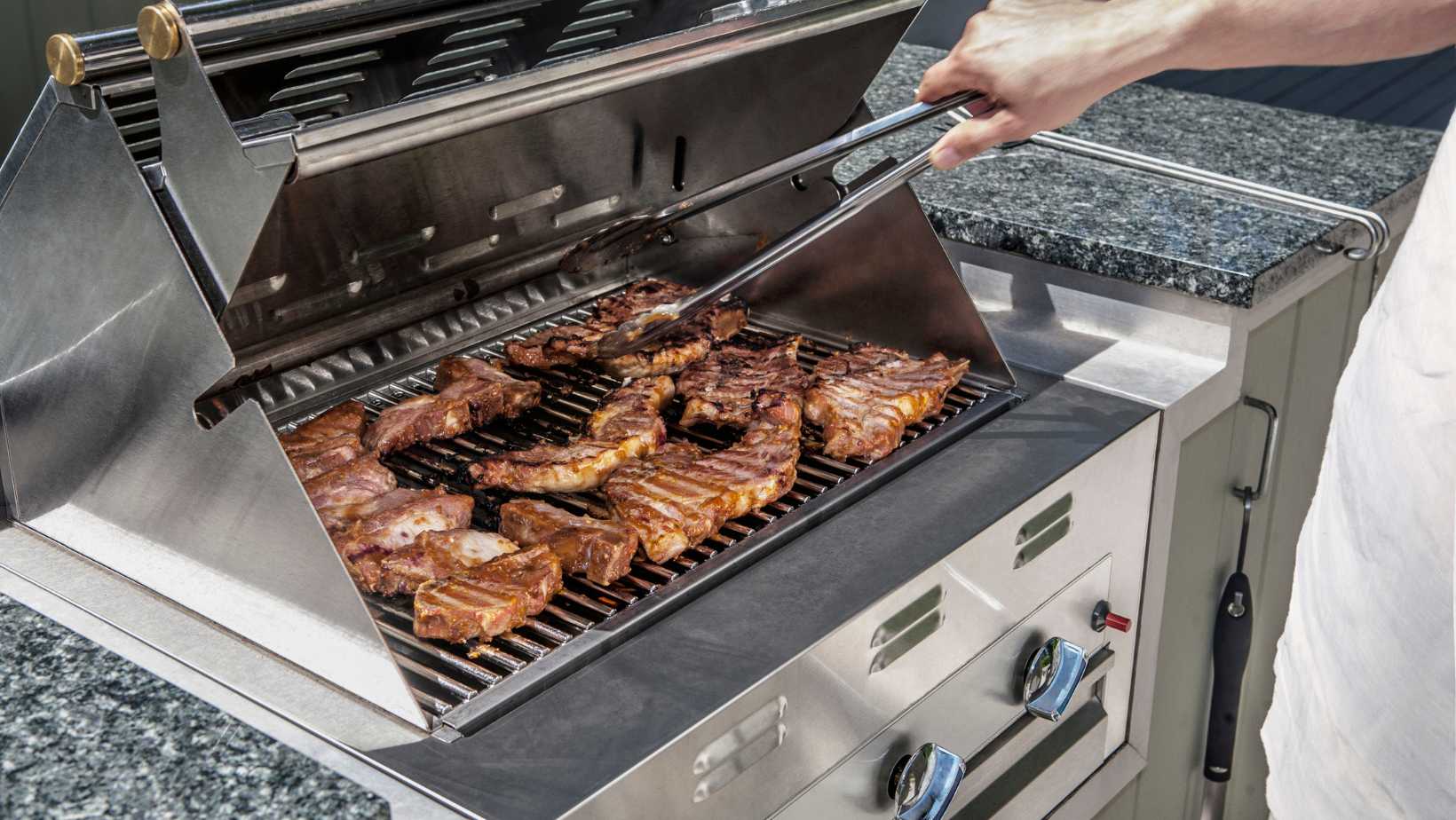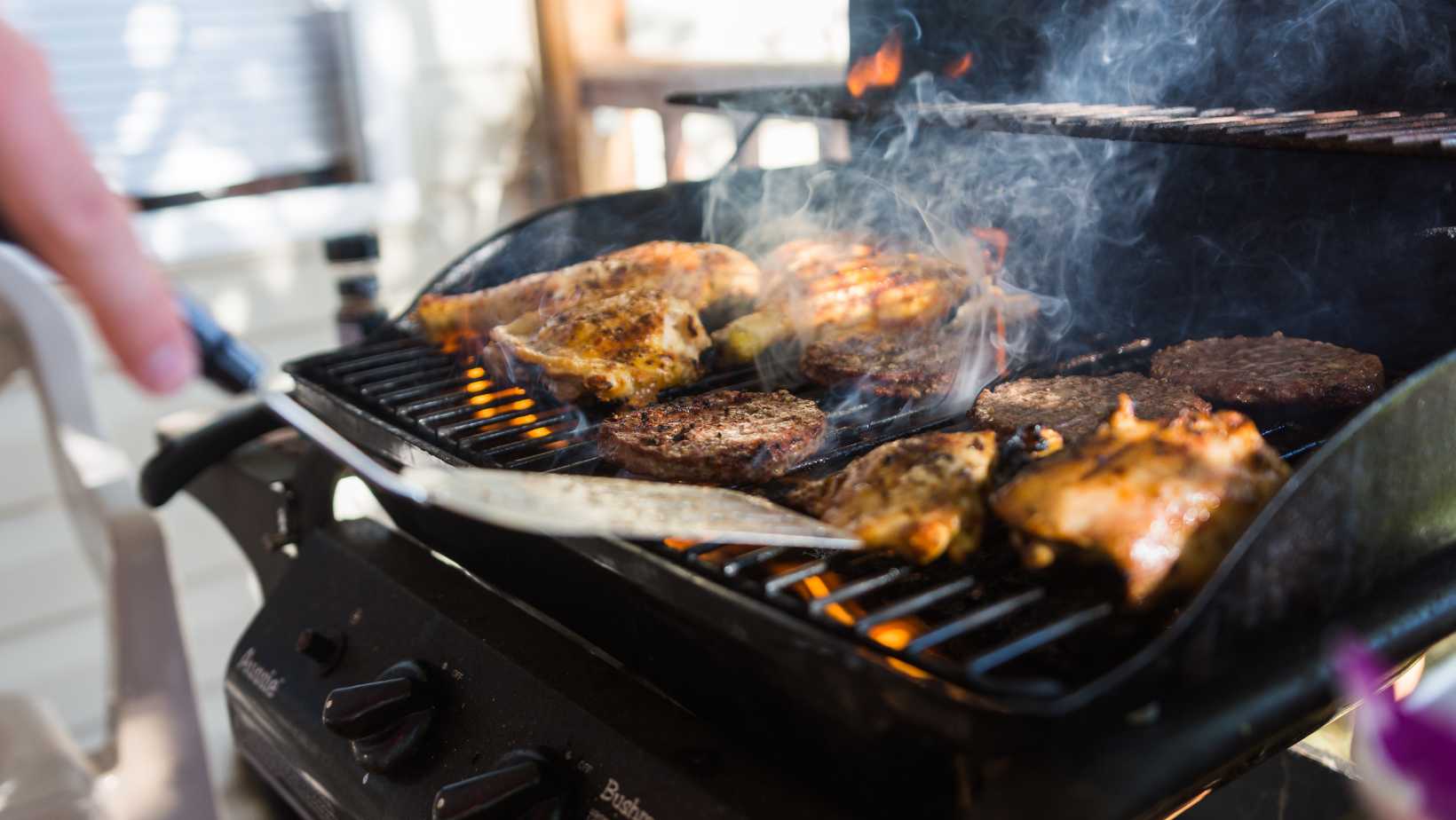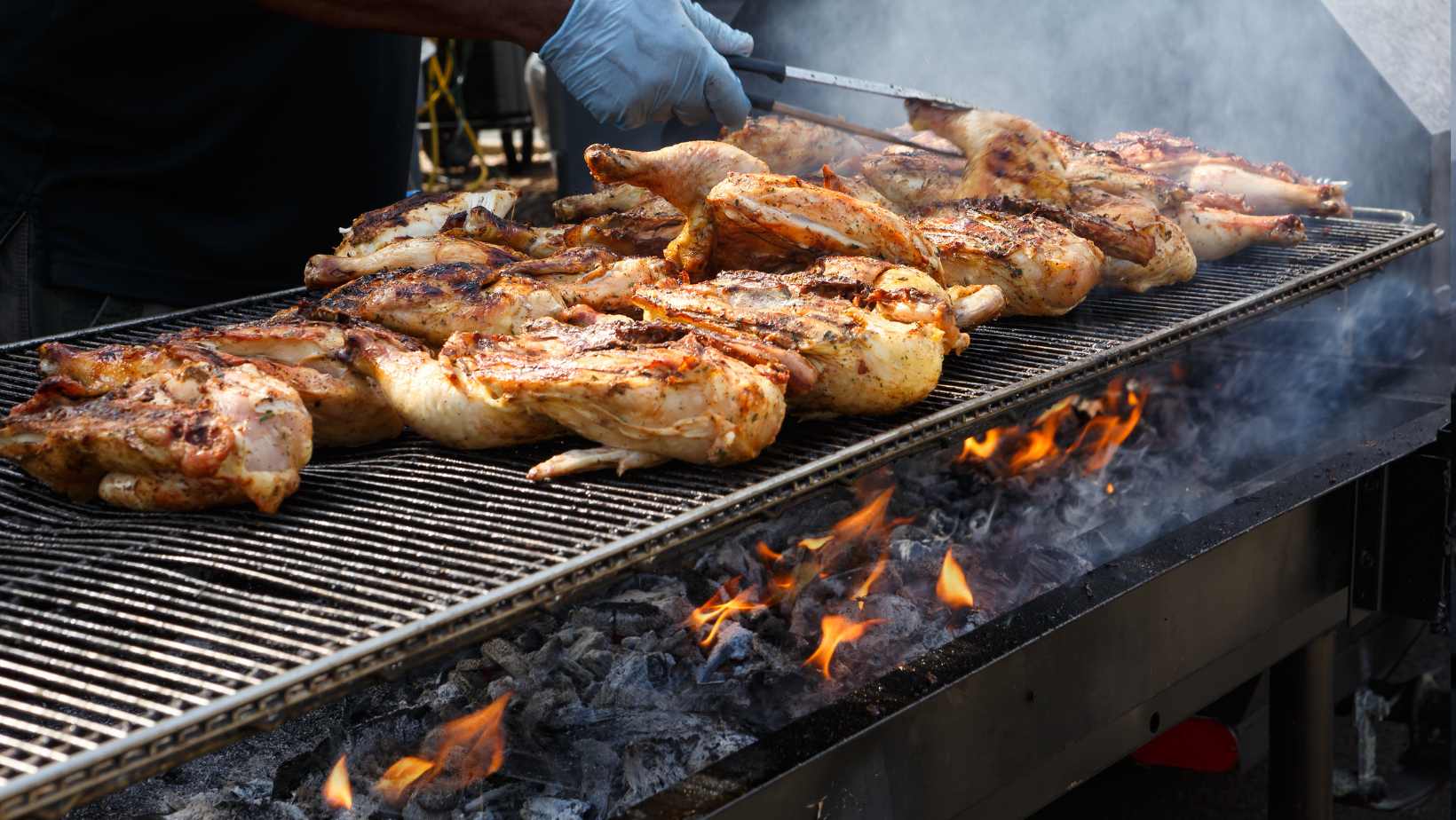
When it comes to grilling, deciding between charcoal and propane is a long-standing debate. Both have pros and cons, ultimately due to personal preference and the type of cooking you plan to do.
Charcoal grills are known for producing a terrific smoky flavor that many people love. They also tend to be less expensive, making them an excellent choice for those on a budget. Charcoal can take longer to heat up and require more preparation time, but they can reach higher temperatures, making them perfect for searing steaks or other meats.
On the other hand, propane grills are much easier to use and require minimal preparation time. They heat up quickly and allow precise temperature control, ideal for cooking more delicate items like fish or vegetables. While they don’t have the same smoky flavor that charcoal provides, many people appreciate the convenience and consistency that comes with using propane.
Ultimately, choosing between charcoal and propane grill comes down to individual preferences. Consider what type of cooking you plan to do, your budget, and how much prep work you’re willing to put in before deciding which option is right for you.
Charcoal Grills: The Pros And Cons
One of the most hotly contested debates regarding outdoor cooking is the one between charcoal and propane grills. Many people swear by charcoal grills, citing their unique flavor and overall experience, while others claim that propane is the more modern, convenient option. Let’s look at the pros and cons of charcoal grills to help you decide if this is the right option for your outdoor cooking needs.
Pros
Flavor: One of the biggest draws of charcoal grills is their unique, smoky flavor. Charcoal infuses your food with a deep, rich, smoky flavor that can’t be replicated with propane.
Versatility: Charcoal grills are incredibly versatile and can be used for high-heat cooking and low-and-slow smoking. You can use different types of charcoal, such as briquettes, lump, or hardwood, to achieve different cooking styles and impart different flavors to your food.
Cost: Charcoal grills are typically less expensive than propane grills, and the fuel is often more affordable. Charcoal grills also tend to last longer than propane models since they have fewer moving parts and require less maintenance.
Cons
Convenience: One of the biggest drawbacks of a charcoal grill is the time it takes to get it ready. You’ll need to light the charcoal, wait for it to get hot, and then spread it out before you can start cooking. This can take anywhere from 20-30 minutes, whereas a propane grill can be ready in just a few minutes.
Cleaning: Charcoal grills can be messier and require more cleanup than propane grills. You’ll need to dispose of the ashes and clean out the grill grates regularly, which can be a bit of a hassle.
Temperature control: Charcoal grills can be a bit trickier to control when it comes to temperature. You’ll need to watch the charcoal and adjust the vents to maintain a constant temperature, which can take some practice.
In conclusion, charcoal grills have much to offer regarding flavor, versatility, and affordability.
However, they require more effort and time to start and can be a bit messier overall. Nevertheless, a charcoal grill may be the way to go if you want a more traditional outdoor cooking experience with a unique flavor profile.
Why Propane Grills Can Be A Great Option
When it comes to grilling, there has always been a debate between using charcoal or propane grills. As an expert in the industry, I can tell you that both have their benefits and drawbacks. First, however, I’ll focus on why propane grills are a great option in this section.
Convenience
One of the biggest benefits of using a propane grill is its convenience. Propane grills are much easier and faster to light than charcoal grills. All you need to do is turn on the propane tank and get ready to go. This means you can start cooking your food much quicker, which is especially important if you’re short on time.
Temperature Control
Another great benefit of using a propane grill is its control over the temperature. Propane grills come with temperature control knobs, which allow you to adjust the heat to your desired temperature. This feature makes it much easier to cook delicate foods, like fish or vegetables, which require a specific temperature to cook properly.
Cleaner Burning
Compared to charcoal grills, propane grills burn much cleaner. As a result, they produce less ash and smoke, so you won’t have to spend as much time cleaning up after cooking. Additionally, the cleaner burn doesn’t sacrifice any flavor or quality in your food.
Cost-Effective
While the initial cost of a propane grill may be slightly more expensive than a charcoal grill, it could save you in the long run. Propane is typically cheaper than charcoal, and propane tanks last longer than charcoal bags. This means you’ll spend less money on fuel for your grill in the long run.
In conclusion, while charcoal and propane grills have pros and cons, propane grills offer convenience, temperature control, cleanliness, and cost-effectiveness, making them a great option for any grill master.
Charcoal vs Propane Grill
Regarding grilling, there are two main options: charcoal and propane. While both methods have advantages and disadvantages, it ultimately comes down to personal preference. Here are some factors to consider when deciding which type of grill is better for your barbecue needs:
Flavor
One of the biggest differences between charcoal and propane grills is the flavor they produce. Charcoal grills give off a smoky flavor that many associate with a classic barbecue taste. On the other hand, propane grills don’t add flavor to the food. So if you’re a purist who loves that smoky taste, then charcoal is the way to go.
Convenience
Propane grills are generally easier and quicker to start than charcoal grills. Simply turn on the gas and light the burners, and you’re ready to go in minutes. Charcoal grills, on the other hand, require more time and effort to light and get up to temperature. While some people enjoy the ritual of building a charcoal fire, others might find it too time-consuming and opt for propane instead.
Cost
In terms of the initial cost of the grill, propane grills are generally less expensive than charcoal grills. However, over time, the cost of propane tanks can add up, while charcoal is typically less expensive and easier to find. Additionally, charcoal is usually the more economical choice if you’re using a smoker.
Versatility
Propane grills are generally more versatile than charcoal grills, as they can be used for direct and indirect grilling. Charcoal grills, on the other hand, are typically better suited for indirect grilling and smoking. While it’s possible to do direct grilling on a charcoal grill, it requires a certain level of skill and attention to avoid flare-ups.
Environmental Impact
There’s also the environmental impact when choosing between charcoal and propane grills. Charcoal grilling produces more smoke and carbon monoxide, which can contribute to air pollution. On the other hand, propane grilling produces fewer emissions and is generally considered a cleaner fuel source.
In conclusion, choosing a charcoal and propane grill depends on personal preference. If you want that classic smoky taste and are willing to spend the time and effort to build a fire, then charcoal is the way to go. On the other hand, propane may be the better choice if you’re looking for convenience and versatility. Whatever you choose, charcoal and propane grilling can make for a delicious and enjoyable outdoor cooking experience.
Conclusion
After thoroughly analyzing the various aspects of both Charcoal and Propane Grills, it is evident that each has its advantages and disadvantages. However, both grills produce tasty, succulent, and delicious food that can tantalize your taste buds.
However, the selection of a grill depends on individual preferences, budget, and lifestyle. To summarize the charcoal vs propane grill debate, here are the key takeaways:
– Charcoal Grills are perfect for those who enjoy the smoky flavor, a bit of fuss, and patience in cooking. They are ideal for outdoor cooking sessions, especially in a rustic environment. Moreover, they are relatively cheaper and portable.
On the other hand, Propane Grills offer fast and consistent cooking, making them excellent for daily use and convenience. They are suitable for those who prefer having more control over their grilling temperature and less time spent cleaning up. Additionally, they are suitable for indoor and outdoor use.
In conclusion, the choice of a grill ultimately boils down to the user’s personal preference. However, whether it’s a charcoal or a propane grill, both offer users a unique experience. With this in mind, I recommend that you try both of them before settling on one.


